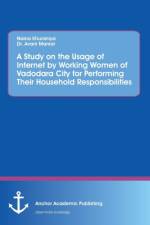av Naina Khuraniya & Avani Maniar
1 211
The internet is a system of enormous technical and social complexity. It comprises a gigantic but almost invisible universe that includes thousands of networks, millions of computers, and billions of users around the world. The internet has widened its reach among people by taking them away from just using it for emails and chat rooms to giving them more alternative media tools to use from. It has given power to the masses to speak about their rights, share their views on particular topics or events, and showcase their abilities to the world. It also provides an opportunity to learn an endless amount of different things, viz. different languages, cuisines, arts, crafts, and much more. The internet can be whatever we make of it. We can shape and form it. But most importantly, we can use it to connect people, communities, and countries around the world. In 2014, India was the third-largest online market with more than 198 million internet users, ranked only behind China and the United States and declaring itself as a market not to be ignored on the global stage. Furthermore, men dominated internet usage with 61 percent, while only 39 percent of women used it. The average daily online usage in India amounted 5.1 hours. There are 345 million users in India, counted in January 2016. With the growing needs of humans, it has become a challenge for women to fulfill all their responsibilities and to perform all their roles at the same time. Therefore, their dependency on family members, helpers/maids, friends, neighbors, and the media has increased. Media here includes print (i.e. newspaper, magazine, tabloids), electronic (i.e. television, radio), and new media (i.e. internet and mobile technology). This study evaluates how the internet can help working women to perform their household responsibilities.



